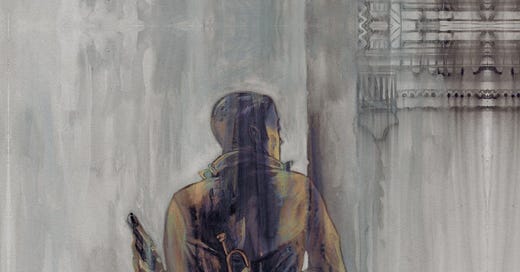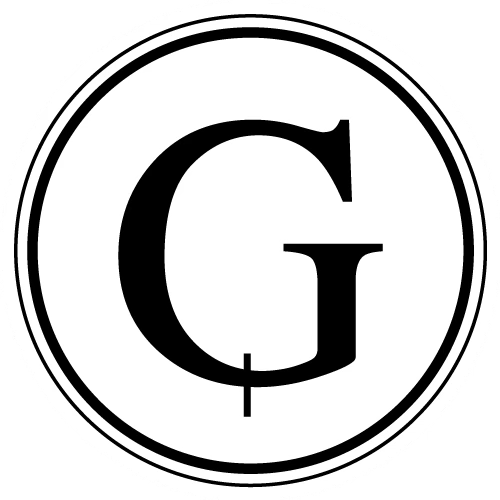What follows is Part 45 of Becoming P.T. Lyfantod
If you missed Part 1, start there:
Back home, I found mam-gu stirring a pot of cawl. She yelled at me for not taking a jacket, then, stomach rumbling, I went upstairs to read until dinner. Along with my two books on Arthur, I’d borrowed one more. The Beginner’s Guide to the Voice. I felt guilty, hiding it from Iain and Stuart. We were in the same boat, after all, as far as singing went. But I was more embarrassed. It’s one thing to think you aren’t any good. I’d proven it conclusively.
I sat down at my desk, turned on my lamp, and opened the Guide. Finding the second stone would be worse than meaningless if I couldn’t learn what Lightfoot had to teach. Much of the advice was about things I’d never considered, like breathing and posture. Suddenly aware of how much I slouched, I sat up straighter in my chair. “Yah-yah-yah…” Was my jaw too tense? My tongue sufficiently relaxed? I imagined an egg at the back of my mouth to create “back space.” I whistled, and laughed, and sighed, and at some point wound up back on my feet with the Guide lying open on my bed. “Mmmeeee mmmoh mmmahhhhh…” Was I resonating? “Hung. Hung—”
Knock-knock-knock. “Are you all right in there? It sounds like you’re choking.”
I jumped. “I’m fine! Just… singing.”
Mam-gu’s head appeared. “Singing? Since when do you sing?” Her eyes flicked around the room.
“Since today. We’re all doing it. It’s err… cool now. So.”
Mam-gu sniffed. “Well, I suppose there’s nothing wrong with singing. Dinner’s in an hour.” Her head vanished and she shut the door.
I sighed. “Maybe that’s enough for today.” I sat back down at my desk and eyed the books on Arthur, but couldn’t muster the energy to open them. A thought struck me. What does Willoughby have to say about him? I dug out Old Magick, and sure enough, I found an entry. I pulled my lamp closer and began to read.
On the Truth of King Arthur
(for the Rosicrucian Post, 1961)
King Arthur is as British as steak and kidney pie, and slightly better liked. Histories of the legendary 5th century king and his knights have been written and rewritten for over a thousand years—altered so thoroughly and so often that getting to the truth of the man behind them seems a task comparable to Arthur’s own quest for the Holy Grail.
The treatise on British kings by Geoffrey of Monmouth; the Welsh Mabinogion and Y Gododdin; the Historia Brittonum; the Annales Cambriae; the romances of Chrétien de Troyes; Sir Thomas Malory’s Le Morte d’Arthur; these comprise only a fraction of the works written of that fabled king—none more recent than 1470, and Y Gododdin possibly written within a hundred years of his death.
No small amount of modern scholarship has been devoted to him, and it is perhaps telling that regarding his historicity (or lack thereof), no two experts agree. Many have come to think of the noble Arthur as more myth than man: a folkloric hero; a figment of the collective imagination of ancient Britain. Others attempt to identify him with other known historical figures: Owain Ddantgwyn and Athrwys ap Meurig of Wales; Ambrosius Aurelianus and Riotamus of sub-Roman Britain; even a Roman officer from the 2nd or 3rd century called Lucius Artorius Castus.
I myself am far from an expert on Arthurian lore. Perhaps one day I will set my sights on cleaving that particular Gordian knot. However, we do swim in the same circles, and since it is my business to know the esoteric and the arcane, it is unavoidable that I should have acquired some knowledge of this storied figure. My experience has led me to several conclusions. First, if one truly wishes to get to the truth of Arthur, he should look to the Pre-Galfridian sources—that is, those dating prior to the publishing of Geoffrey of Monmouth’s Historia Regum Britanniae. While the authenticity of the Historia Regum itself is open to debate, it is apparent that Monmouth relied upon earlier sources for much of his work. Those he inspired, though, (like Malory and de Troyes) were inclined toward artistic license. Unless I have made an error in judgement, the romance traditions and the post-medieval literature, while often beautiful or moving (as Tennyson’s Idylls of the King) are to be valued solely as entertainment—or at best, windows into the artistic souls of their creators.
My second conclusion is that Arthur—whatever he was actually called while living—was almost certainly a Celtic Briton, which is to say Welsh, Cornish, or—
“Hey—hey! Stop!” Rudy held up his hands.
“What is it? Did you hear something?” I peered around the confines of our cell.
“No! I want to know how long you’re planning to go on like this.”
“What do you mean?” I asked him.
“It sounds like you memorized the encyclopedia. I want to know if there’s a point to this history lesson.”
“Of course there’s a point! I’m trying to convey how much effort went into solving the riddle that led us to the second standing stone!”
“So you did find it, then.”
“As a matter of fact,” I nodded.
“Does it happen anytime soon?” asked Coira. “Because unless this ends with you actually meeting King Arthur, I don’t care.”
“We—” I sputtered. “It’s the details that make the story! If I tell it right, you’ll be able to figure out the riddle yourselves, before the moment of revelation. If you think carefully. You’ll have the anticipation of waiting to have your suspicions confirmed, and then the satisfaction of knowing you were right!”
“I want the short version, where you get to the point and skip the research. You can leave in the interesting parts, like if Tom and Iain ever fight for Merry’s heart—”
“Yeah! I wanna see someone get punched—”
“—or if they kiss—”
“Gross!” Rudy grimaced. “Tom and Iain?”
“Iain and Merry! Idiot. Clearly they were meant to be together.”
Rudy stuck out his tongue. “Uegh. Still gross.”
I protested. “But the research is—”
“BORING!” the two of them shouted together.
“I suppose you don’t want any tips on how to improve your singing, either? Useful stretches to open up y—”
“No,” they replied, once more in emphatic unison.
“But if Iain learns sword fighting, you can talk about that,” Rudy added.
“Fine,” I conceded, though I was loath to do it. “I’ll try to keep to the interesting parts of my life story, so as not to bore your excellencies. Heaven forbid you accidentally learn something…”
“Thank you.”
I finished the passage, convinced by… things Willoughby wrote, that Arthur must have existed, and that he’d been a Briton. I found no mention of Illtud, but there was a lengthy section on Yuletide. Willoughby discussed Yule logs, Yule boars, and Yule goats, and speculated a fair bit regarding the existence of Santa Claus, for whom he’d set elaborate traps for years. Nothing, however, about thirsty stones.
Effectively, I wasn’t far from where I’d started, except I’d have to tell Stuart there was probably nothing useful in Le Morte D’arthur; and Iain that while The Once and Future King was good fun, there was otherwise no point in reading it. I’d see what I could find in The Real Camelot, and hope the others had better luck. Maybe The Mabinogion or Y Gododdin would have answers. If I could read them. My Welsh was mediocre at best. When mam-gu called me down to dinner, my stomach and my tired brain were equally grateful.








